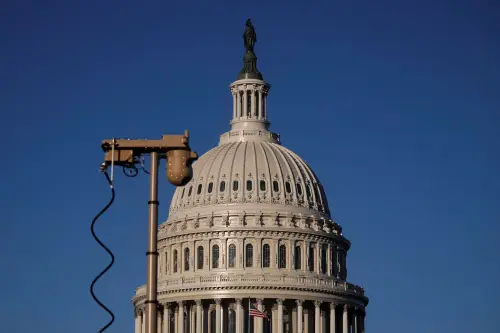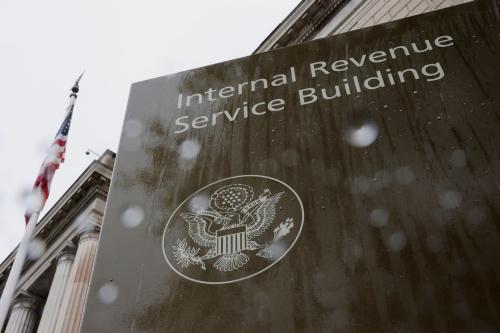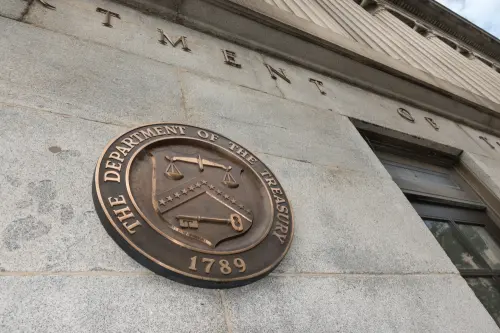This paper is part of the Summer 2020 special edition of the Brookings Papers on Economic Activity, the leading conference series and journal in economics for timely, cutting-edge research about real-world policy issues. The editors are Brookings Nonresident Senior Fellow and Northwestern University Professor of Economics Janice Eberly and Brookings Nonresident Senior Fellow and Harvard University Professor of Economics James Stock. Submit a proposal for future BPEA conferences here.
Household spending plunged across the income spectrum during the early weeks of the coronavirus pandemic but has rebounded faster since then for the bottom 25 percent, according to a paper discussed at the Brookings Papers on Economic Activity conference on June 25. That suggests, it says, that government stimulus programs, at least so far, have limited the effects of job losses.
In Initial impacts of the pandemic on consumer behavior: Evidence from linked income, spending, and savings data, the authors used various public data sources to simulate the effects on income from job losses and government payments. For spending and saving, they analyzed anonymized credit and debit card transactions and checking account balances of millions of JP Morgan Chase customers through the end of May.
Card spending plunged 40 percent in the second half of March and then began to recover, according to the authors—Natalie Cox and Arlene Wong of Princeton University; Peter Ganong, Pascal Noel, and Joseph Vavra of the University of Chicago; and Diana Farrell, Fiona Grieg, and Erica Deadman of JP Morgan Chase Institute.
Spending declines initially were proportionately similar across incomes, although modestly larger for the top 25 percent of households, who in normal times spend more than other households on non-essential goods and services such as travel, entertainment, and restaurant meals. Starting in mid-April, spending began to recover for all income groups but much more rapidly for the bottom 25 percent of households, the authors note.
Incomes including transfers during the pandemic have risen very modestly for high‑income households, the authors estimate, but significantly for low‑income households, despite severe job losses. With spending opportunities limited by business closures and other measures to contain the pandemic, checking account balances are rising, but especially for low-income households more likely to benefit from government stimulus.
The pattern of income, spending, and saving suggest several conclusions, the authors write, including:
- Direct responses to the pandemic, such as business shutdowns and canceled events, are so far the principal drivers of spending declines rather than job and income losses.
- Government stimulus is likely playing an important role in supporting the spending of low-income households and bolstering their savings. They include one-time payments of up to $1,200 per individual and $2,400 per married couple, and a $600 weekly supplement to unemployment benefits through July.
The authors caution that, even with the rebound since mid-April, spending overall remains severely depressed and policymakers should not conclude the economy has returned to normal.
“New stimulus may be needed to maintain spending for low-income, vulnerable households in the near future.”
“New stimulus may be needed to maintain spending for low-income, vulnerable households in the near future,” the authors write. “Phasing out broad stimulus too quickly could potentially transform a … recession driven by the direct effects of the pandemic into a broader and more persistent recession.”
David Skidmore authored the summary language for this paper.
CITATION
Cox, Natalie, Peter Ganong, Pascal Noel, Joseph Vavra, Arlene Wong, Diana Farrell, and Fiona Grieg. 2020. “Initial Impacts of the Pandemic on Consumer Behavior: Evidence from Linked Income, Spending, and Savings Data.” Brookings Papers on Economic Activity, Summer, 35-69.
CONFLICT OF INTEREST DISCLOSURE
The authors did not receive financial support from any firm or person for this paper or from any firm or person with a financial or political interest in this paper. They are currently not officers, directors, or board members of any organization with an interest in this paper. While working on this paper, co-author Pascal Noel was an academic fellow with the JP Morgan Chase Institute (JPMCI) and received financial compensation for providing research advice on public reports produced by the JPMCI. Co-authors Fiona Greig and Erica Deadman are currently employees of JPMCI. JPMCI provided the data for this report and reviewed this data to avoid personal disclosure of personal identifying information, as well as the disclosure of firm intellectual property, and that the research output is consistent with the scope of the initial proposal. Discussant Jonathan Parker is an unpaid consultant at JPMCI where he does work for the Institute and has access to the data for research purposes utilized by Cox, et al. The views expressed in this paper are those of the authors, and do not necessarily reflect those of the JP Morgan Chase Institute, Princeton University, or the University of Chicago.
The Brookings Institution is committed to quality, independence, and impact.
We are supported by a diverse array of funders. In line with our values and policies, each Brookings publication represents the sole views of its author(s).












